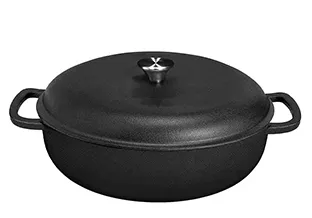
is cast iron durable
The Durability of Cast Iron A Timeless Material
Cast iron has been a beloved material for centuries, revered for its exceptional durability and versatility. This alloy, primarily composed of iron, carbon, and silicon, has carved a prominent niche in various industries, from cookware to construction. Understanding why cast iron is so durable can help us appreciate its lifespan and advantages in everyday use.
One of the primary reasons for the durability of cast iron is its unique microstructure. When molten iron cools, it forms a combination of iron carbide and graphite. This structure provides cast iron with remarkable strength and wear resistance. Unlike other materials that may bend or warp under pressure, cast iron maintains its shape and integrity even under heavy loads. This property makes it an ideal choice for heavy-duty applications, such as engine blocks and machinery parts.
The Durability of Cast Iron A Timeless Material
Another factor contributing to the durability of cast iron is its ability to develop a natural non-stick coating through seasoning. Seasoning involves applying a layer of oil and heating it, resulting in a polymerized surface that enhances performance and protects the underlying metal. This protective layer not only makes cooking easier but also prevents rust and corrosion. While some materials may degrade or require frequent replacement, well-seasoned cast iron could last a lifetime or longer, making it a wise investment for anyone who loves cooking.
is cast iron durable

In addition to its physical properties, cast iron also excels in terms of aesthetics. Many people appreciate the rustic charm that cast iron brings to their kitchen or outdoor grill. Its classic black finish has become synonymous with quality cookware. The durability of cast iron allows it to develop a naturally beautiful patina over time, adding character and a history that cannot be replicated by modern materials.
Cast iron's durability is not limited to cookware; it has found various applications in construction and manufacturing. For instance, cast iron is widely used for pipes, manhole covers, and architectural elements due to its strength and ability to resist degradation caused by elements and chemical exposure. Its longevity reduces the need for frequent replacements, ultimately leading to cost savings in maintenance and resource management.
However, it is essential to note that while cast iron is indeed durable, it is not indestructible. It can crack or break under conditions of extreme impact or if exposed to rapid temperature changes. Therefore, proper handling and maintenance are crucial to maximizing its lifespan. Regular seasoning and careful cleaning can maintain its quality and performance, ensuring that cast iron products serve their users well for years.
In conclusion, the durability of cast iron is a testament to its exceptional properties and versatility. Whether in the kitchen or used in infrastructure, cast iron stands the test of time, proving to be a reliable and effective choice. Its unique characteristics make it a highly valued material that continues to be cherished by both artisans and everyday users alike. Investing in cast iron is undoubtedly a choice for longevity, quality, and a connection to a rich tradition of craftsmanship.
-
Season Cast Iron Perfectly with GPT-4 Turbo TipsNewsAug.01,2025
-
High Quality Cast Iron Cookware - Baixiang County Zhongda MachineryNewsAug.01,2025
-
Premium Cast Iron Pan: Durable & Perfect HeatNewsAug.01,2025
-
High Quality Kitchen Durable Black Round Cast Iron Cookware Pancake Crepe Pan-Baixiang County Zhongda Machinery Manufacturing Co., Ltd.NewsAug.01,2025
-
Cast Iron Cookware - Baixiang County Zhongda Machinery | Nonstick, Heat ResistanceNewsAug.01,2025
-
High Quality Kitchen Durable Black Round Cast Iron Cookware - Baixiang County Zhongda Machinery | Non-Stick, Heat Retention, DurableNewsJul.31,2025


